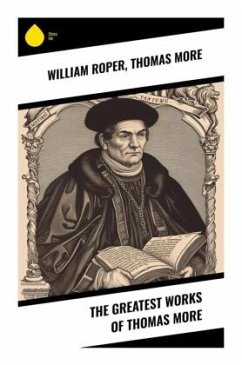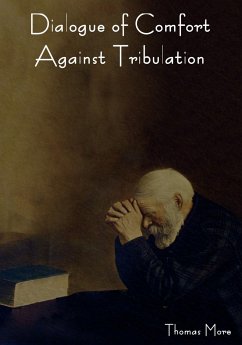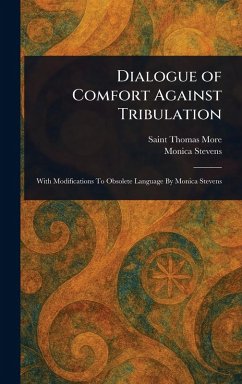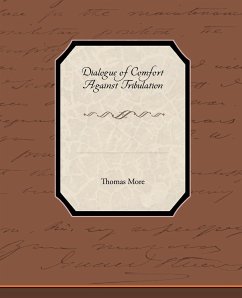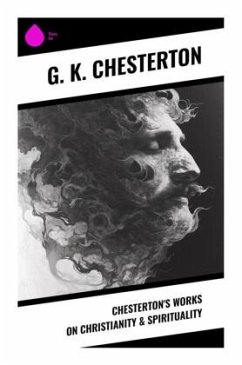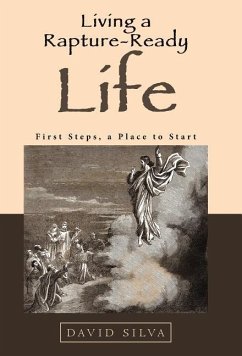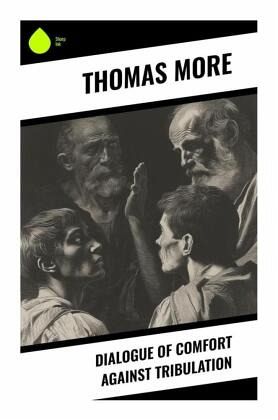
Dialogue of Comfort Against Tribulation
Versandkostenfrei!
Versandfertig in 6-10 Tagen
12,00 €
inkl. MwSt.

PAYBACK Punkte
0 °P sammeln!
In "Dialogue of Comfort Against Tribulation," Thomas More employs the form of a philosophical dialogue to explore themes of suffering, faith, and the consolation found in divine grace during times of despair. Written during a tumultuous period marked by More's personal trials, this work blends humanist thought with rich theological insight, presenting an accessible yet profound discourse that resonated with the spiritual and intellectual currents of the Renaissance. The dialogue unfolds between two characters, providing a multifaceted exploration of how adherence to virtue can sustain the soul...
In "Dialogue of Comfort Against Tribulation," Thomas More employs the form of a philosophical dialogue to explore themes of suffering, faith, and the consolation found in divine grace during times of despair. Written during a tumultuous period marked by More's personal trials, this work blends humanist thought with rich theological insight, presenting an accessible yet profound discourse that resonated with the spiritual and intellectual currents of the Renaissance. The dialogue unfolds between two characters, providing a multifaceted exploration of how adherence to virtue can sustain the soul amidst hardship. Thomas More, a devoted humanist and a prominent figure of the early 16th century, faced significant adversity, notably during his opposition to King Henry VIII. His steadfast commitment to his faith, even in the face of persecution, deeply informs this dialogue. More's background as a lawyer, scholar, and statesman equipped him with the rhetorical skill to articulate complex ideas while making them relatable to a broad audience, effectively bridging the gap between scholarly discourse and popular understanding. "Dialogue of Comfort Against Tribulation" is highly recommended for readers seeking solace and understanding in challenging times. More's eloquent discourse offers timeless reflections that encourage resilience and hope, making it a crucial read for anyone interested in the intersections of faith, philosophy, and the human experience.



